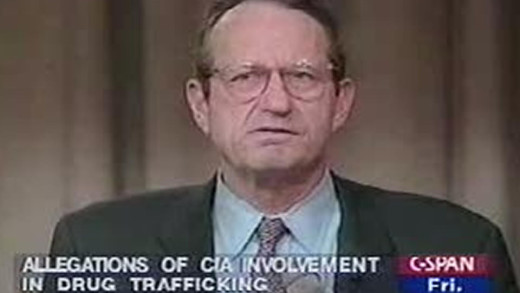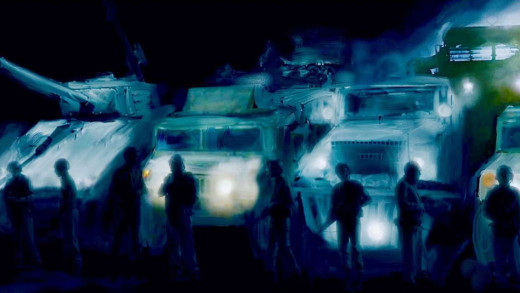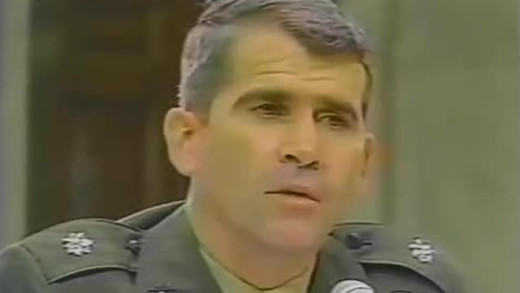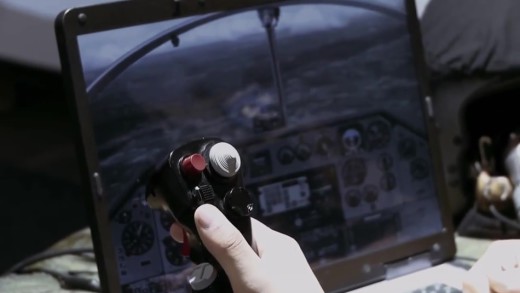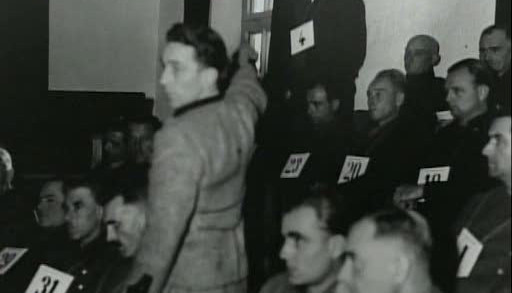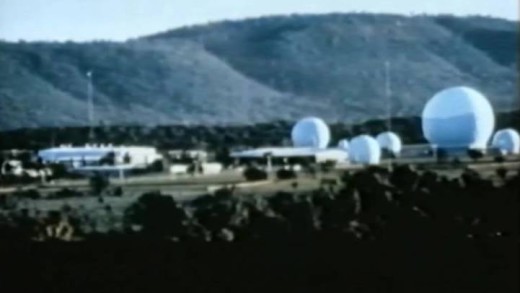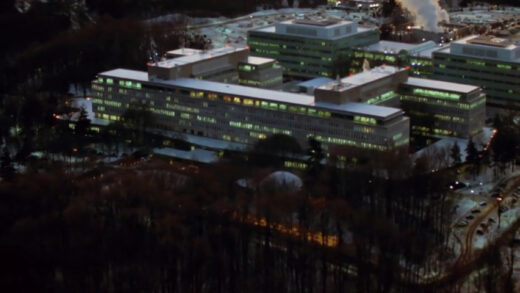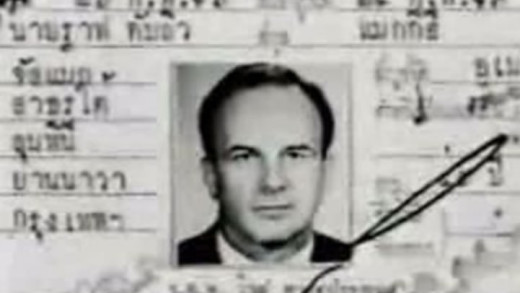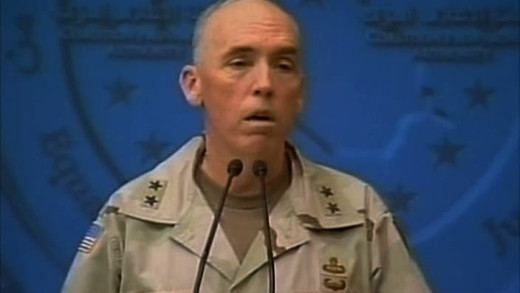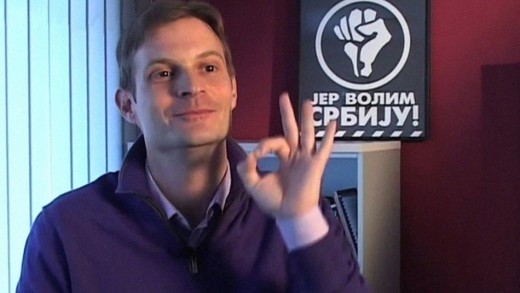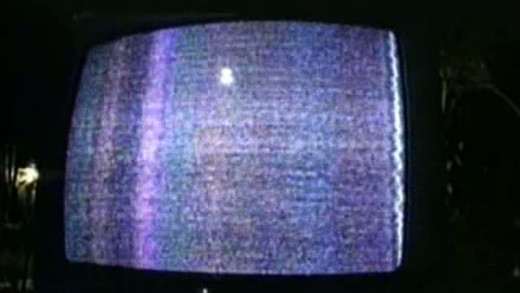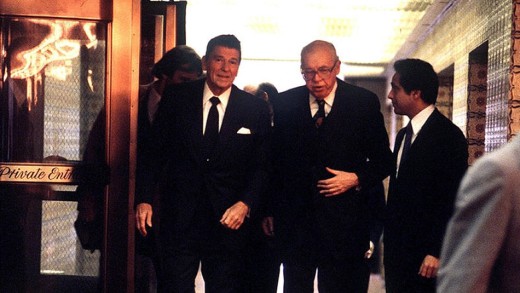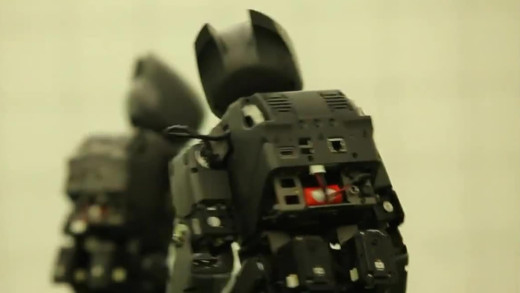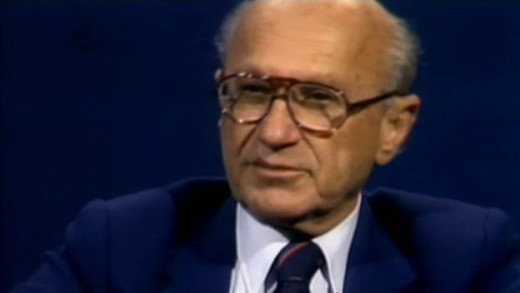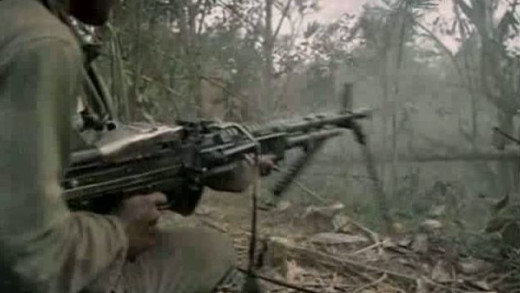During a town hall meeting in central Los Angeles 1996, then CIA Director John Deutch made an appearance on a panel of government representatives to refute documented allegations that the CIA had sold drugs in Los Angeles in order to finance covert operations in Central America. Questions are put forward by many people, including author and investigative journalist Michael Ruppert who explains of documented evidence of direct CIA involvement in drug trafficking, making mention of covert operations...
More than 40 years after his death, the body of former CIA scientist Frank Olson has been exhumed. Olson's son Eric is convinced his father was murdered by agents of the government because he wanted to leave the CIA. Frank Olson was an expert for anthrax and other biological weapons and had top security clearance. Forensic pathologists at George Washington University performed an autopsy and concluded that Olson probably was the victim of a violent crime. Codename Artichoke documents these strange aspects of the CIA's quest for mind control drugs, with programs like MKULTRA, MKDELTA, Artichoke, Operation Midnight Climax and others...
Counter-Intelligence is a 5 part series that explores in-depth, the vast, sprawling and secret National Security State that operates throughout the United States--and indeed the world. The series examines the foundations of the Military-Industrial-Intelligence Complex, charting through to the myriad consequences in today's world where secret intelligence organisations continue to hijack governments, manipulate elections and commit heinous crimes against humanity--all under the cloak of "National Security". In the wake of the continued revelations of the NSA PRISM program, this series is now more important than ever to provide a solid historical context to the workings of the rapacious and ever-expanding National Security State...
Coup 53
The 1953 Iranian coup d'état was the overthrow of the democratically elected government of Iran in favour of strengthening the monarchical rule of the Shah for the purposes of foreign access to Iran's oil. BP was at the heart of this story. The operation was orchestrated by the United States under the name TPAJAX Project (Operation Ajax) and the United Kingdom under the name Operation Boot. While making a documentary about this CIA/MI6 coup, Iranian director Taghi Amirani and editor Walter Murch discover never seen before archive material hidden for decades. The 16mm footage and documents not only allow the filmmakers to tell the story of the overthrow of the Iranian government in unprecedented detail, but also leads to explosive revelations about dark secrets buried for 67 years. Working with Ralph Fiennes to help bring the lost material to life, what begins as a historical documentary about four days in August 1953 turns into a live investigation, taking the film-makers into uncharted cinematic territory.
Cover Up -- Behind The Iran-Contra Affair is a thorough investigation into information suppressed during the Iran-Contra hearings in 1987 where it was found that senior officials in the United States government secretly facilitated the sale of arms to Iran. The film reveals a shadow government of former CIA operatives, drug smugglers, top US military personnel and others, revealing evidence of the history of CIA involvement in drug running from the Vietnam heroin era to the Central American cocaine epidemic -- raising serious questions about the so-called "war on drugs" and other government movements since the 1980s...
Cover-Up explores the investigative journalism career of Seymour Hersh, a Pulitzer Prize-winning journalist, exposing the United States' war crimes during the Vietnam War and the secret US bombing of Cambodia, the Watergate scandal, the CIA's program of domestic spying, and the torture and abuse of prisoners at Abu Ghraib during the war on terror and the invasion of Iraq.
Drone
In the wake of the September 11th attacks, amongst the ravaging of war, the United States has been secretly deploying drones to carry out assassinations throughout the Middle East. The drones are increasingly piloted by the likes of young computer gamers groomed by screen culture and computer games of war, where in many cases, the Pentagon is directly involved in the creation of such games as recruitment tools, actively working to lure young people proficient with technology into the new era of the military-industrial-complex. Drone unravels this complex phenomenon while travelling to places such as Waziristan, where innocent civilians, including children and rescue workers are routinely secretly killed, where families and communities ravaged by the drone strikes search for understanding, accountability and adjustment to the daily horrors. The film also takes a look at the young people sitting behind the screens of the new war machines, half a world away, that actually pull the trigger, asking what kind of world is being built in the rise of seemingly endless and lucrative war driven by technological escalation.
In the early 1940s, hundreds of thousands of people unknowingly became test subjects in toxins experiments and biological weapons tests conducted by the United States government. LSD tested on civilians, nerve gas sprayed into suburbs, hospital patients injected with plutonium, children exposed to biological and chemical agents just to see what would happen...the list goes on. And in most if not all cases, tests were carried out without the knowledge or consent of those involved. In 1996, evidence of these secret operations hit the news, uncovering a history of secret operations and covert projects that cast a large shadow over the operations of US military and intelligence agencies, to this day. Experiments with biological weapons and the testing of chemical warfare were only part of the story...
In 1966, Australia made an agreement with the United States that allowed the establishment of a secret military base satellite tracking station, just south of Alice Springs in the Northern Territory. The facility is called Pine Gap and for more than forty years it has operated in a shroud of secrecy and been the target of much controversy. Home on The Range attempts to contextualise these issues by highlighting the history of the base and its origins, as well as the stories of controversy. Some of these include the Khemlani Affair and the sacking of the Whitlam government in 1975, the Christopher Boyce spy trial, the role of the Central Intelligence Agency and its former agent Victor Marchetti, as well as documenting the post-war culture of government secrecy, sprawling intelligence agencies and foreign affairs and policy. But Home on the Range does more than gesture toward such CIA interventions. It marshals a persuasive array of evidence linking the imminent expiry of leases on United States military and intelligence bases in Australia in 1975, to the CIA and Whitlam's sacking, posing direct questions about the nature of democracy in regions beholden to the United States.
Follows former top officials and elite operatives inside the CIA as they share accounts of their efforts to stop Osama bin Laden and the catastrophic attack they knew was coming which ended up being September 11th 2001.
From its origins as the Office of Strategic Services in the 1950s until present as the CIA, president Harry Truman's creation has been the object of mystery, thrills and fear to people all over the world with even the White House fearing the agency. With resources to assassinate political leaders, overthrow governments and start wars, Secrets Of The CIA documents these operations of the CIA from the perspective of ex-agents as they speak about their experiences working for the CIA, tell of what they were required to do in places like South America, Europe and in the United States, and how they enjoyed the work...
Taxi To The Dark Side examines America's policy on torture and interrogation in general, specifically the CIA's use of torture and their research into sensory deprivation. There is description of the opposition to the use of torture from its political and military opponents, as well as the defence of such methods; the attempts by Congress to uphold the standards of the Geneva Convention forbidding torture; and the popularisation of the use of torture techniques in American television shows...
The Living Dead: Three Films About the Power of the Past is a series of films that investigate the way that history and memory (both national and individual) have been manipulated and distorted by politicians and others for various means of control...
The Power Principle is a series of films examining the history of the United States and the building of its empire with particular emphasis on the last seventy years of United States foreign policy. The methods that make empire possible are also examined—the politics of fear, the rise of public relations, the 'Mafia Principle' and the reoccurring use of fabled enemies, contrasting the Soviet Union and the Cold War alongside the parallels of today with the "War On Terror". Not only does The Power Principle tie together historical events to revive a common thread, the series may also encourage viewers to reconsider their understanding of historical events and the portrayal of them, showing how those in power play a role in manipulating the collective memory through generations.
The Revolution Business examines the role of United States intelligence agencies in the recent revolutionary movements such as the Arab Spring and others by the use of "Revolution Consultants." Of particular interest is a Serbian man Srđa Popović, who formed an organisation called Отпор! (Otpor) which tought "non-violent struggle" in the overthrow of Slobodan Milošević in Serbia during the 1990s, and which has now gone on to inspire a new generation of activists. However, some political commentators like William Engdahl are convinced that Otpor is financed by the United States and has ties to intelligence agenices, also having dubious funding from sources such as the Rand Corporation, the Department of Defence, as well as various fronts such as the National Endowment for Democracy (NED), the International Republican Institute (IRI), the US Institute of Peace and the Ford Foundation--all of which have a long history of collaborating with the Pentagon, the State Department and the CIA in destabilising movements and usurping popular uprisings, removing their teeth.
The Revolution Will Not Be Televised documents first-hand the events in Venezuela leading up to and during the April 2002 coup d'état attempt which briefly deposed President Hugo Chávez. A television crew from Ireland's national broadcaster, RTÉ happened to be recording a documentary about Chávez during the events. Shifting focus, the crew followed events as they occurred and captured images that they say contradict explanations given by Chávez's opposition, the private media, the US State Department, and then White House Press Secretary Ari Fleischer. The Revolution Will Not Be Televised details how the coup was the result of a conspiracy between various old guard and anti-Chávez factions within Venezuela and the United States...
The Secret Government, as its title suggests, is essentially an investigation into the processes, plans, operations and persons responsible for systemic abuses of power at senior levels of the United States government during the 1980s. The film covers multiple covert operations and secret projects, but takes a particular focus on the Iran–Contra affair of 1986, where Ronald Regan secretly facilitated the illegal sale of arms to Iran—which was the subject of an arms embargo at the time—to support a right-wing terrorist group called "The Contras," and also make obscene profits from the sale of such weapons. Transported to the political happenings of today, The Secret Government is a call to remember history, and see that mass profits from weapons dealing running covert/secret wars were a reality then, and now, as well as to reveal just how far institutionalised propaganda and obfuscation works to conceal these home truths, still generations later.
Over the past decade, the United States military has shifted the way it fights its wars, deploying more technological systems in the battlefield than human forces. Today there are more than 7,000 drones and 12,000 ground robots in use by all branches of the military. These systems mean less deaths for US troops, but increased killings and precision elsewhere for the United States war machine. With lethal drone strikes being carried out in secret by the CIA and occurring outside of officially declared war zones such as Pakistan, Yemen and Somalia, the secret use of robots and drones in this way evokes serious questions about the operations of the United States and what this means for the rest of the world as more and more autonomy is developed for these technologies.
By comparing the confluence of ideas about modifying behaviour using shock therapy and other forms of sensory deprivation (which culminated in the top-secret CIA project called MKULTRA during the 1950s) alongside the metaphor of similar shock treatment modifying national economics using the teachings of Milton Friedman and the Chicago School of economics, The Shock Doctrine presents the workings of global capitalism in this framework of how the United States, along with other western countries, has exploited natural and human-engineered disasters across the globe to push through reforms and set-up other mechanisms that suit those in power and 'shock' other countries into a certain wanted behaviour. Chronologically, some historical examples are the using of Pinochet's Chile, Argentina and its junta, Yeltsin's Russia, and the invasion of Iraq. A trumped-up villain always provides distraction or rationalisation for the intervention of the United States—for example, the threat of Marxism, the Falklands, nuclear weapons, or terrorists—and further, is used by those in power as more justification for the great shift of money and power from the many into the hands of the few(er).
US Foreign Policy -- The War Against The Third World is a video compilation series of 10 segments about CIA covert operations and military interventions since World War II.
We
We is a visual essay exploring the politics of empire, war, corporate globalisation, imperialism and history; using the words of Indian author and political activist Arundhati Roy, from her speech Come September given in Santa Fe, New Mexico one year after the September 11th attacks--not long after the invasion of Afghanistan. The result is a mix of archive footage illustrating specific historical events throughout South America, the Middle East and elsewhere, in context with the September 11th attacks; placed alongside the themes of empire, global economics and a short history of neo-collonialism...
